Robert King, The King's Consort - Purcell: The Complete Sacred Music Of Henry Purcell (11CDs Boxed set) (2002)
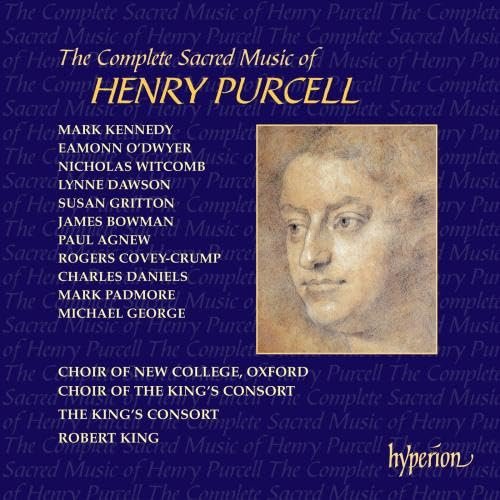
Artist: Robert King, The King's Consort
Title: Purcell: The Complete Sacred Music Of Henry Purcell
Year Of Release: 2002
Label: Hyperion
Genre: Classical
Quality: FLAC (image+.cue,log,scans)
Total Time: 12:18:36
Total Size: 3.3 GB
WebSite: Album Preview
Tracklist:Title: Purcell: The Complete Sacred Music Of Henry Purcell
Year Of Release: 2002
Label: Hyperion
Genre: Classical
Quality: FLAC (image+.cue,log,scans)
Total Time: 12:18:36
Total Size: 3.3 GB
WebSite: Album Preview
Disc: 1
1 Finnis, Jerome - O Sing Unto the Lord Z 44
2 Sinfonie
3 O Sing Unto the Lord a New Song
4 Sing Unto the Lord, & Praise His Name
5 The Lord Is Great, An Cannot Worthily Be Praised
6 O Worship the Lord in the Beauty of Holiness
7 Tell Ist Out Among the Heathen
8 Bowman, James - O Praise God in His Holiness Z 42
9 Sinfonie
10 Priae Him in His Noble Acts
11 Praise Him Upon the Well-Tuned Cymbals
12 Finnis, Jerome - Praise the Lord, O Jerusalem Z 46
13 Sinfonie
14 Praise the Lord, O Jerusalem
15 Be Thou Exalted, Lord, in Thine Own Strength
16 Bowman, James - It Is a Good Thing to Give Thnaks
17 Sinfonie
18 To Tell of Thy Loving Kindness Early in the Mornin
19 O Lord, How Glorious Are Thy Works, & Thy Though
20 For Thou Lord, Hast Made Me Glad Through Thy Works
21 Witcomb, Nicholas - O Give Thanks Unto Lord Z 33
22 O Give Thanks Unto Lord, for He Is Gracious, & H
23 Who Can Express the Noble Acts of the Lord
24 Remember Me, O Lord, According to the Favour That
25 That I May See the Felicity of Thy Chosen
26 Blessed Be the Lord God of Israel from Everlasting
27 Finnis, Jerome - Let Mine Eyes Run Down with Tears
28 Let Mine Eyes Run Down with Tears Night & Day
29 We Acknowledge, O Lord, Our Wickedness
30 Do Not Abhor Us, for Thy Name's Sake
31 Bowman, James - My Beloved Spake Z 28
32 Sinfonie
33 For Lo! the Winter Is Past
34 And the Time of the Singing of the Birds Is Come
35 Sinfonie
36 My Beloved Is Mine
Disc: 2
1 Hallchurch, Philip - Blessed Are They That Fear TH
2 Sinfonie
3 Blessed Are They That Fear the Lord & Walk in Hi
4 The Lord Thy God from Out of Sion Shall So Bless T
5 Alleluia
6 Bowman, James - Behold Now, Praise the Lord Z 3
7 Sinfonie
8 Behold Now, Praise the Lord All Ye Servants of the
9 Glory Be to the Father, & to the Son
10 Lochmann, Daniel - I Will Give Thanks Unto Thee, O
11 Sinfonie
12 I Will Give Thanks Unto Thee, O Lord, with My Whol
13 Sinfonie
14 All the Kings of the Earth Shall Praise Thee, O Lo
15 George, Michael - My Song Shall Be Alway Z 31
16 Sinfonie
17 My Song Shall Be Alway of the Loving Kindness of T
18 God Is Very Greatly to Feared in the Council of TH
19 Sinfonie
20 O Lord God of Hosts, Who Is Like Unto Thee?
21 Alleluia
22 Bowes, Timothy - Te Deum Laudamus & Jubilate D-Dur
23 We Praise Thee, O God, We Ackowledge Thee to Be TH
24 The Father of An Infinite Majesty
25 When Thou Took'st Upon Thee to Deliver Man
26 O Lord, Save the People, & Bless Thine Heritage
27 Vouchsafe, O Lord, to Keep Us This Day Without Sin
28 Lochmann, Daniel - Jubilate Deo
29 O Be Joyful in the Lord, All Ye Lands
30 Be Ye Sure That the Lord He Is God
31 For the Lord Is Gracious, His Mercy Is Everlasting
32 Glory Be to the Father, & to the Son, & the Ho
Disc: 3
1 Dawson, Lynne - Blow Up the Trumpet in Sion Z 10
2 Dawson, Lynne - the Lord Is King, Be the People Ne
3 Dawson, Lynne - Begin the Song, & Strike the Livin
4 Dawson, Lynne - the Word Is a Lantern Unto My Feet
5 Dawson, Lynne - Tell Me, Some Pitying Angel Z 196
6 Dawson, Lynne - Hear My Prayer, O Lord Z 15
7 Dawson, Lynne - Lord, I Can Suffer Thy Rebukes Z 1
8 Dawson, Lynne - O Lord, Our Governer Z 39
9 Dawson, Lynne - Remember Not, O Lord, Our Offence
10 Dawson, Lynne - Hosanna to the Highest Z 187
11 Dawson, Lynne - O God, Thou Has Cast Us Out Z 36
Disc: 4
1 Gritton, Susan - Behold, I Breing You Glad Tidings
2 Gritton, Susan - Since God, So Tender a Regard Z 1
3 Gritton, Susan - Early, O Lord, My Fainting Soul Z
4 Gritton, Susan - Sleep, Adam, Sleep & Take Thy Res
5 Gritton, Susan - Awake, Ye Dead Z 182
6 Gritton, Susan - the Earth Trembled Z 197
7 Gritton, Susan - the Way of God Is An Undefined Wa
8 Gritton, Susan - Lord, Not to Us, But to Thy Name
9 Gritton, Susan - Sing Unto God Z 52
10 Gritton, Susan - Sing Unto God Z 52
11 Gritton, Susan - O, All Ye People, Clap Your Hands
12 Gritton, Susan - My Heart Is Inditing Z 30
13 Sinfonie
14 She Shall Be Brought Unto the King in Raiment of N
15 Sinfonie
16 Praise the Lord, O Jerusalem
Disc: 5
1 Gritton, Susan - O Lord, Rebuke Me Not Z 40
2 Gritton, Susan - with Sick & Famish'd Eyes Z 200
3 Gritton, Susan - How Log, Great God? Z 189
4 Gritton, Susan - Awake, & with Attention Hear Z 18
5 Gritton, Susan - O God, Thou Art My God Z 35
6 Gritton, Susan - We Sing to Him, Whose Wisdom Form
7 Gritton, Susan - Praise the Lord, O My Soul, & All
8 Gritton, Susan - O, I'm Sick of Life Z 140
9 Gritton, Susan - O God, the King of Glory Z 34
10 Gritton, Susan - Let the Night Perish Z 191
11 Gritton, Susan - When on My Sick Bed I Languish Z
12 Gritton, Susan - Rejoice in the Lord Alway Z 49
Disc: 6
1 Kennedy, Mark - Why Do the Heathen So Furiously Ra
2 Kennedy, Mark - Lord, Who Can Tell How Oft He Offe
3 Kennedy, Mark - O Lord, Grant the King a Long Life
4 Kennedy, Mark - Hear Me, O Lord, the Great Support
5 Kennedy, Mark - Thou Wakeful Shepherd That Does Is
6 Kennedy, Mark - Who Hath Believed Our Report? Z 64
7 Kennedy, Mark - I Will Love Thee, O Lord Z 67
8 Kennedy, Mark - Great God & Just Z 186
9 Kennedy, Mark - Plung'd in the Confines of Despair
10 Kennedy, Mark - O Praise the Lord, All Ye Heathen
11 Kennedy, Mark - My Heart Is Fixed, O God Z 29
Disc: 7
1 Gritton, Susan - I Was Glad When They Said Unto Me
2 Gritton, Susan - O Consider My Adversity Z 32
3 Gritton, Susan - Beati Omnes Qui Timent Dominum Z
4 Gritton, Susan - I Was Glad When They Said Unto Me
5 Gritton, Susan - in the Black Dismal Dungeon of de
6 Gritton, Susan - Save Me, O God Z 51
7 Gritton, Susan - Te Deum B-Dur Z 230
8 Gritton, Susan - Jubilate B-Dur Z 230
9 Gritton, Susan - Thy Way, O God, Is Holy Z 60
10 Gritton, Susan - Drum Processional
11 Gritton, Susan - March Z 860
12 Gritton, Susan - Man That Is Born of a Woman Z 27
13 Gritton, Susan - in the Midest of Life Z 17B
14 Gritton, Susan - Thou Know'st, Lord, the Secrets O
15 Gritton, Susan - Thou Know'st, Lord, the Secrets O
16 Gritton, Susan - Canzona Z 860
17 Gritton, Susan - Drum Recessional
Disc: 8
1 Kennedy, Mark - in Thee, O Lord, Do I Put My Trust
2 Kennedy, Mark - Blessed Is the Man That Feareth TH
3 Kennedy, Mark - Benedicite B-Dur Z 230
4 Kennedy, Mark - Jehova, Quam Multi Sunt Hostes Z 1
5 Kennedy, Mark - Full of Wrath His Threatening Brea
6 Kennedy, Mark - Bow Down Thine Ear, O Lord Z 11
7 Kennedy, Mark - Magnificat G-Moll Z 231
8 Kennedy, Mark - Nunc Dimittis G-Moll Z 231
9 Kennedy, Mark - Be Merciful Unto Me Z 4
10 Kennedy, Mark - They That Go Down Tot He Sea in SH
Disc: 9
1 Gritton, Susan - the Lord Is My Light Z 55
2 Gritton, Susan - the Lord Is King, the Earth May B
3 Gritton, Susan - Blessed Is He Whose Unrighteousne
4 Gritton, Susan - O Lord God of Hosts Z 37
5 Gritton, Susan - Let God Arise Z 23
6 Gritton, Susan - Cantate Domino Z 230
7 Gritton, Susan - Deus Misereator Z 230
8 Gritton, Susan - Blessed Be the Lord My Strenghth
9 Gritton, Susan - O Lord Our Governor Z 141
10 Gritton, Susan - in Guilty Night Z 134
Disc: 10
1 Gritton, Susan - I Will Give Thanks Unto Lord Z 21
2 Gritton, Susan - I Will Sing Unto the Lord As Long
3 Gritton, Susan - How Have I Stray'd Z 188
4 Gritton, Susan - Benedictus B-Dur Z 230
5 Gritton, Susan - Hear My Prayer, O God Z 14
6 Gritton, Susan - Kyrie Eleison B-Dur Z 230
7 Gritton, Susan - Out of the Deep Have I Called Z 4
8 Gritton, Susan - Nicene Creed B-Dur Z 230
9 Gritton, Susan - Blessed Is He That Considereth TH
10 Gritton, Susan - the Lord Is King, & Hath Put on G
11 Gritton, Susan - Unto Thee Will I Cry Z 63
Disc: 11
1 Gritton, Susan - Praise the Lord, O My Soul, O Lor
2 Gritton, Susan - Close Thine Eyes & Sleep Secure Z
3 Gritton, Susan - Lord, How Long Wilt Thou Be Angry
4 Gritton, Susan - Hear Me O Lord Z 13A / B
5 Gritton, Susan - Magnificat B-Dur Z 230
6 Gritton, Susan - Nunc Dimittis B-Dur Z 230
7 Gritton, Susan - Turn Thou Us, O Good Lord Z 62
8 Gritton, Susan - O Lord, Thou Art My God Z 41
9 Gritton, Susan - Now That the Sun Hath Veiles His
10 Gritton, Susan - Awake, Awake Put on Thy Strenght
Purcell began his musical upbringing as a boy chorister. There is nothing inherently unusual about that, for many British musicians have, over the years, been fortunate enough to have that unequalled education. But had he been born just a few years earlier, this would have been impossible. Fortunately, within a few months of his birth the puritan rule of Oliver Cromwell came to an end, and the monarchy and the Anglican Church were restored to Britain, releasing with it a burst of musical creativity and life that has never since been repeated. By the 1680s, when Purcell’s genius was flowering, London was buzzing with newly-written music for the church, the royal and private chapels, the newly-founded concert halls, the theatres and even the taverns.
But the twenty years which led to this explosion of music were not at all easy. Cromwell’s regime had done terrible damage to music in England, and only a handful of composers of note survived to see the Restoration. Music in Britain had always relied heavily on patronage, and the royal establishments had always been the greatest source of performers and composers. By 1660 few of these remained, and music under Charles II had to begin almost afresh. One of Charles’s first court appointments was that of Henry Cooke as Master of the Children of the Chapel Royal. As part of the royal establishment there were twelve such Children, who sang at services in the Chapel: their Master was responsible not only for their musical tuition but also for seeing that they were housed, fed, cared for when they were sick, had their clothes washed and repaired, had a fire in the winter, and that they were educated properly. By all accounts the royal purse was often strained, and Cooke was frequently owed large sums by the Crown. He was clearly a fine teacher, for his pupils included John Blow, Michael Wise and Pelham Humfrey (who succeeded to Cooke’s post in 1672), together with the young Henry Purcell. We do not know when Purcell entered the Chapel, but it may have been as early as 1667. Highly fashionable at the time was the latest French and Italian music, and Purcell would clearly have come under its influence.
When Purcell’s voice broke at what was then the unusually early age of fourteen, he was clearly thought of as a gifted musician, for he was apprenticed (without salary) to John Hingeston, the royal repairer and tuner of musical instruments. Such a post would have brought him into daily contact with all the royal musical establishments and their leading figures. Not only did he tune the organ in Westminster Abbey, for instance, but he also had lessons in composition from its distinguished organist, John Blow, forging a connection with the Abbey that Purcell was to continue for the rest of his life. For the next three years the name of Henry Purcell continued to appear in the Abbey’s paybooks for tuning the organ and copying the occasional manuscript. He must have continued with his compositions, for in 1677 came his first official post. The eighteen-year old Purcell was appointed Composer-in-Ordinary to the Violins.
The Royal Violins were a string orchestra, modelled on the famous French court orchestra, the Vingt-quatre violons du Roi, who played not only for the king at his table, but also in the Chapel Royal. Though chronically short of money, Charles took a keen interest in the music of his Chapel, and by bringing together the choir and the Violins (or more usually a small nucleus of them) he greatly encouraged the development of the large-scale verse anthem with strings.
In 1679 a greater appointment came Purcell’s way when he was made Organist of Westminster Abbey (keeping his job with the Violins) at the sum of £10 per annum, with an additional £8 towards the rental of a house. A major part of his post was to compose music for the Abbey, and this he did with great productivity. His speed of composition was remarkable, for over the next five years he contributed nearly 150 anthems, services and other sacred works. At the same time he was starting to compose music for the theatre (in fifteen years he provided music for over forty plays, as well as the five semi-operas and Dido), chamber music (the Sonnatas in three and four parts, and the Fantasias all probably date from 1680), writing the first of his twenty-four wonderful odes and welcome songs – and finding time to marry Frances Peters. In 1682 Purcell was additionally appointed one of the three organists at the Chapel Royal – a sure sign of royal favour and growing reputation, and also another reason for the continued outpouring of church music (an excuse to move into rather more grand quarters in Great St Anne’s Lane, where easy access to Westminster Abbey could be gained through Dean’s Yard). He must also have welcomed the extra £60 per annum that his appointment as ‘organ maker and keeper etc., in the place of Mr Hingeston, deceased’ brought him, but he would have earned every penny of his various salaries. The workload of being organist at the Abbey and the Chapel Royal, Composer to the Violins, Keeper of Instruments and a busy freelance composer was enormous.
The majority of Purcell’s church music was written before 1685, when Charles II died. Though the King’s finances had always been in a terrible state, he had been a great friend and encouraging patron of music. King James was less popular, unsubtly trying to impose his Catholic tastes on his subjects, and infuriating the musical establishment by setting up his own Roman Catholic chapel in Whitehall, with no expense spared: the salaries of the singing-men and instrumentalists alone came to £1,500 per annum. Worse still, James employed many foreign musicians, and at the same time the number of men at the Chapel Royal shrank from 32 to 23. Although Purcell seems to have carried out his royal duties conscientiously, he appears to have written relatively little music for James, choosing instead to divert his energies elsewhere. In many of those settings which he did provide, gone seems to be the exuberant intention of impressing a Sunday congregation at the Chapel, replaced by a more contemplative, penitential, almost private mood. Some of these smaller-scaled works – devotional songs – appear not to have been written for the Chapel Royal, but for private use.
The riches contained in Purcell’s sacred music are almost embarrassing. Extant are sixty-five full and verse anthems, a morning and evening service in B flat, a Magnificat and Nunc Dimittis in G minor and a setting of the Te Deum and Jubilate (all with basso continuo and nearly half of them with string accompaniment), together with another thirty-five pieces whose texts are not taken from the bible: these latter examples range in scale from single voices to full choir with soloists, all with basso continuo but none with other instruments.
Although a small number of Purcell’s church works are regulars on the service papers of Britain’s cathedrals and collegiate choral establishments, the majority of his output for the Church is nowadays seldom heard. In church the string accompaniments today have usually to be played on an organ, losing Purcell’s delicious string textures which are such an attractive feature of the works. And those works which are recorded have rarely reproduced the orchestral line-up which was actually available at the Chapel Royal.
For special occasions (such as a coronation) a large string band would have been assembled, but for the majority of services at which instrumentalists were present, Purcell would have had only single strings (two violins, viola and two bass violins), an organ and two theorbos at his disposal. There were no sixteen-foot instruments used at the Chapel: the bass line was played by bass violins (their tone colour distinctive due to their being larger and tuned a tone lower than a cello), an organ and a pair of theorbos. For anthems and devotional songs which were intended to be accompanied only by continuo instruments, the ensemble would have contained just one bass violin, one or two theorbos and a small organ.
Pitch in the Chapel Royal, unusually, was much higher than our ‘standardised baroque’ A=415Hz, and higher even than ‘modern’ A=440Hz. These recordings take A=466Hz as their pitch centre; not only does this follow clear historical evidence, but it also makes sense of Purcell’s improbably (and uncharacteristically) low vocal writing in his Chapel Royal works. It gives a new dimension to the music, creating a choral and string sound that, to those used to hearing Purcell performed at a lower pitch, is quite revelatory. For the works that appear to have been written for use away from the Chapel Royal, where performing pitch was lower, we took A=415Hz as our pitch centre: the clearest practical evidence that the composer was writing for this lower pitch comes from the differing vocal tessitura of these pieces.
Some of the men at the Chapel Royal were extremely good singers, and Purcell’s writing is evidence of fine adult voices in all sections – not just those such as John Gostling whose low notes brought him fame. Nowadays the finest singers do not tend to sing in cathedral choirs to augment their living (though it is remarkable how many pass through the system before busy diaries force them to stop), but in Purcell’s day there was less work around, and the Chapel Royal would probably have had the Bowman, Daniels and George of our day on its books, along with John Gostling, William Turner and Purcell’s other notable singers. Thus our use of modern-day ‘stars’ for the verse sections seems fully justified. And our use of the Chapel Royal’s high pitch is as clear a proof, if ever one was needed, that the countertenor voice was thriving at the Chapel Royal: many of Purcell’s alto lines in the sacred music are clearly written for falsettist.
Purcell must have had a handful of remarkable trebles at the Chapel Royal, because his verse-writing for the boys in the anthems often treats them no differently to his adult male soloists. For those devotional songs which seem to demand a boy’s voice (rather than those clearly written with a woman’s voice in mind – royal taste was moving to favour women’s voices at the theatre) Purcell’s writing requires not only singing of considerable control, but also a genuine understanding of the text. We know little about Purcell’s choristers, though with his own upbringing in the Chapel choir he must have been thoroughly acquainted with a choirboy’s lifestyle, and respectful of their professionalism. There is one story relating to the rehearsals in 1692 of the music to the play The Libertine, containing the song ‘Nymphs and shepherds come away’ which was being sung by the famous treble Jemmy Bowen. One of the musicians bossily told Bowen ‘to grace and run a Division [i.e. an ornament] in such a Place. “O, let him alone”, said Mr Purcell; “he will grace it more naturally than you, or I, can teach him”’. In that fleeting moment we get another, human reason why Purcell was so universally admired. And if this was how he always treated his choirboys, they must have adored him!
In recording all Purcell’s sacred music we attempted (as far as we could, three hundred years after the event) to recreate the textures, the performing pitch and the scale of performance that Purcell might have heard at his services: we also tried to build into our recorded sound picture the seventeenth-century acoustics of the Chapel Royal – a surprisingly small and intimate building which was sadly burned to the ground in a terrific fire at the end of the seventeenth century. Luckily ground plans still survive which show the dimensions of the Chapel. The top line of our choral sound aimed to imitate the colour that we believe Purcell’s experienced, sixteen-year-old choristers (whose voices were still unbroken) must have produced. But, scholarly considerations aside, what is most important (and what wins through) is wonderful music of the highest quality that deserves to be heard far more often than it is. It was no exaggeration at Purcell’s death when he was described by his fellow British musicians as “The greatest Genius we ever had”.
But the twenty years which led to this explosion of music were not at all easy. Cromwell’s regime had done terrible damage to music in England, and only a handful of composers of note survived to see the Restoration. Music in Britain had always relied heavily on patronage, and the royal establishments had always been the greatest source of performers and composers. By 1660 few of these remained, and music under Charles II had to begin almost afresh. One of Charles’s first court appointments was that of Henry Cooke as Master of the Children of the Chapel Royal. As part of the royal establishment there were twelve such Children, who sang at services in the Chapel: their Master was responsible not only for their musical tuition but also for seeing that they were housed, fed, cared for when they were sick, had their clothes washed and repaired, had a fire in the winter, and that they were educated properly. By all accounts the royal purse was often strained, and Cooke was frequently owed large sums by the Crown. He was clearly a fine teacher, for his pupils included John Blow, Michael Wise and Pelham Humfrey (who succeeded to Cooke’s post in 1672), together with the young Henry Purcell. We do not know when Purcell entered the Chapel, but it may have been as early as 1667. Highly fashionable at the time was the latest French and Italian music, and Purcell would clearly have come under its influence.
When Purcell’s voice broke at what was then the unusually early age of fourteen, he was clearly thought of as a gifted musician, for he was apprenticed (without salary) to John Hingeston, the royal repairer and tuner of musical instruments. Such a post would have brought him into daily contact with all the royal musical establishments and their leading figures. Not only did he tune the organ in Westminster Abbey, for instance, but he also had lessons in composition from its distinguished organist, John Blow, forging a connection with the Abbey that Purcell was to continue for the rest of his life. For the next three years the name of Henry Purcell continued to appear in the Abbey’s paybooks for tuning the organ and copying the occasional manuscript. He must have continued with his compositions, for in 1677 came his first official post. The eighteen-year old Purcell was appointed Composer-in-Ordinary to the Violins.
The Royal Violins were a string orchestra, modelled on the famous French court orchestra, the Vingt-quatre violons du Roi, who played not only for the king at his table, but also in the Chapel Royal. Though chronically short of money, Charles took a keen interest in the music of his Chapel, and by bringing together the choir and the Violins (or more usually a small nucleus of them) he greatly encouraged the development of the large-scale verse anthem with strings.
In 1679 a greater appointment came Purcell’s way when he was made Organist of Westminster Abbey (keeping his job with the Violins) at the sum of £10 per annum, with an additional £8 towards the rental of a house. A major part of his post was to compose music for the Abbey, and this he did with great productivity. His speed of composition was remarkable, for over the next five years he contributed nearly 150 anthems, services and other sacred works. At the same time he was starting to compose music for the theatre (in fifteen years he provided music for over forty plays, as well as the five semi-operas and Dido), chamber music (the Sonnatas in three and four parts, and the Fantasias all probably date from 1680), writing the first of his twenty-four wonderful odes and welcome songs – and finding time to marry Frances Peters. In 1682 Purcell was additionally appointed one of the three organists at the Chapel Royal – a sure sign of royal favour and growing reputation, and also another reason for the continued outpouring of church music (an excuse to move into rather more grand quarters in Great St Anne’s Lane, where easy access to Westminster Abbey could be gained through Dean’s Yard). He must also have welcomed the extra £60 per annum that his appointment as ‘organ maker and keeper etc., in the place of Mr Hingeston, deceased’ brought him, but he would have earned every penny of his various salaries. The workload of being organist at the Abbey and the Chapel Royal, Composer to the Violins, Keeper of Instruments and a busy freelance composer was enormous.
The majority of Purcell’s church music was written before 1685, when Charles II died. Though the King’s finances had always been in a terrible state, he had been a great friend and encouraging patron of music. King James was less popular, unsubtly trying to impose his Catholic tastes on his subjects, and infuriating the musical establishment by setting up his own Roman Catholic chapel in Whitehall, with no expense spared: the salaries of the singing-men and instrumentalists alone came to £1,500 per annum. Worse still, James employed many foreign musicians, and at the same time the number of men at the Chapel Royal shrank from 32 to 23. Although Purcell seems to have carried out his royal duties conscientiously, he appears to have written relatively little music for James, choosing instead to divert his energies elsewhere. In many of those settings which he did provide, gone seems to be the exuberant intention of impressing a Sunday congregation at the Chapel, replaced by a more contemplative, penitential, almost private mood. Some of these smaller-scaled works – devotional songs – appear not to have been written for the Chapel Royal, but for private use.
The riches contained in Purcell’s sacred music are almost embarrassing. Extant are sixty-five full and verse anthems, a morning and evening service in B flat, a Magnificat and Nunc Dimittis in G minor and a setting of the Te Deum and Jubilate (all with basso continuo and nearly half of them with string accompaniment), together with another thirty-five pieces whose texts are not taken from the bible: these latter examples range in scale from single voices to full choir with soloists, all with basso continuo but none with other instruments.
Although a small number of Purcell’s church works are regulars on the service papers of Britain’s cathedrals and collegiate choral establishments, the majority of his output for the Church is nowadays seldom heard. In church the string accompaniments today have usually to be played on an organ, losing Purcell’s delicious string textures which are such an attractive feature of the works. And those works which are recorded have rarely reproduced the orchestral line-up which was actually available at the Chapel Royal.
For special occasions (such as a coronation) a large string band would have been assembled, but for the majority of services at which instrumentalists were present, Purcell would have had only single strings (two violins, viola and two bass violins), an organ and two theorbos at his disposal. There were no sixteen-foot instruments used at the Chapel: the bass line was played by bass violins (their tone colour distinctive due to their being larger and tuned a tone lower than a cello), an organ and a pair of theorbos. For anthems and devotional songs which were intended to be accompanied only by continuo instruments, the ensemble would have contained just one bass violin, one or two theorbos and a small organ.
Pitch in the Chapel Royal, unusually, was much higher than our ‘standardised baroque’ A=415Hz, and higher even than ‘modern’ A=440Hz. These recordings take A=466Hz as their pitch centre; not only does this follow clear historical evidence, but it also makes sense of Purcell’s improbably (and uncharacteristically) low vocal writing in his Chapel Royal works. It gives a new dimension to the music, creating a choral and string sound that, to those used to hearing Purcell performed at a lower pitch, is quite revelatory. For the works that appear to have been written for use away from the Chapel Royal, where performing pitch was lower, we took A=415Hz as our pitch centre: the clearest practical evidence that the composer was writing for this lower pitch comes from the differing vocal tessitura of these pieces.
Some of the men at the Chapel Royal were extremely good singers, and Purcell’s writing is evidence of fine adult voices in all sections – not just those such as John Gostling whose low notes brought him fame. Nowadays the finest singers do not tend to sing in cathedral choirs to augment their living (though it is remarkable how many pass through the system before busy diaries force them to stop), but in Purcell’s day there was less work around, and the Chapel Royal would probably have had the Bowman, Daniels and George of our day on its books, along with John Gostling, William Turner and Purcell’s other notable singers. Thus our use of modern-day ‘stars’ for the verse sections seems fully justified. And our use of the Chapel Royal’s high pitch is as clear a proof, if ever one was needed, that the countertenor voice was thriving at the Chapel Royal: many of Purcell’s alto lines in the sacred music are clearly written for falsettist.
Purcell must have had a handful of remarkable trebles at the Chapel Royal, because his verse-writing for the boys in the anthems often treats them no differently to his adult male soloists. For those devotional songs which seem to demand a boy’s voice (rather than those clearly written with a woman’s voice in mind – royal taste was moving to favour women’s voices at the theatre) Purcell’s writing requires not only singing of considerable control, but also a genuine understanding of the text. We know little about Purcell’s choristers, though with his own upbringing in the Chapel choir he must have been thoroughly acquainted with a choirboy’s lifestyle, and respectful of their professionalism. There is one story relating to the rehearsals in 1692 of the music to the play The Libertine, containing the song ‘Nymphs and shepherds come away’ which was being sung by the famous treble Jemmy Bowen. One of the musicians bossily told Bowen ‘to grace and run a Division [i.e. an ornament] in such a Place. “O, let him alone”, said Mr Purcell; “he will grace it more naturally than you, or I, can teach him”’. In that fleeting moment we get another, human reason why Purcell was so universally admired. And if this was how he always treated his choirboys, they must have adored him!
In recording all Purcell’s sacred music we attempted (as far as we could, three hundred years after the event) to recreate the textures, the performing pitch and the scale of performance that Purcell might have heard at his services: we also tried to build into our recorded sound picture the seventeenth-century acoustics of the Chapel Royal – a surprisingly small and intimate building which was sadly burned to the ground in a terrific fire at the end of the seventeenth century. Luckily ground plans still survive which show the dimensions of the Chapel. The top line of our choral sound aimed to imitate the colour that we believe Purcell’s experienced, sixteen-year-old choristers (whose voices were still unbroken) must have produced. But, scholarly considerations aside, what is most important (and what wins through) is wonderful music of the highest quality that deserves to be heard far more often than it is. It was no exaggeration at Purcell’s death when he was described by his fellow British musicians as “The greatest Genius we ever had”.
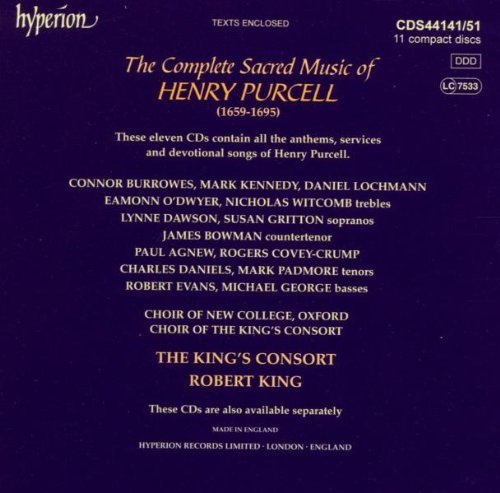
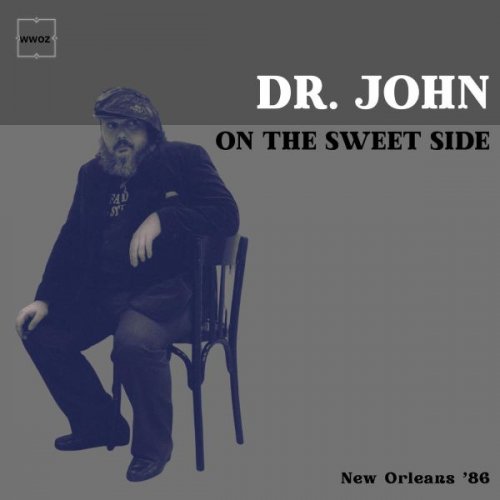
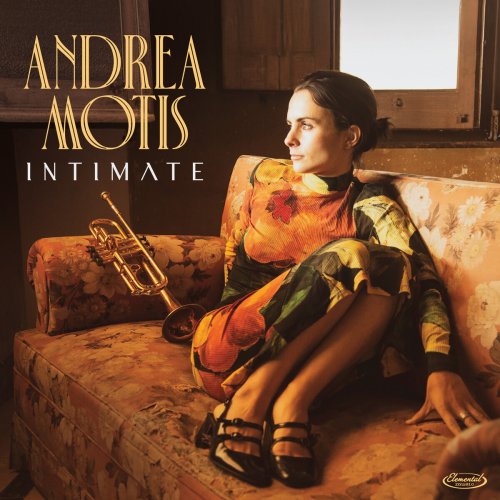
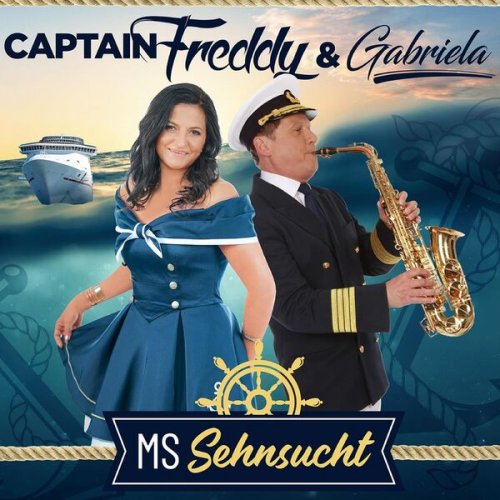

![Stefano Battaglia, Stefano Battaglia Standards Quartet - One Mile Away (2026) [Hi-Res] Stefano Battaglia, Stefano Battaglia Standards Quartet - One Mile Away (2026) [Hi-Res]](https://www.dibpic.com/uploads/posts/2026-03/1772346486_cover.jpg)
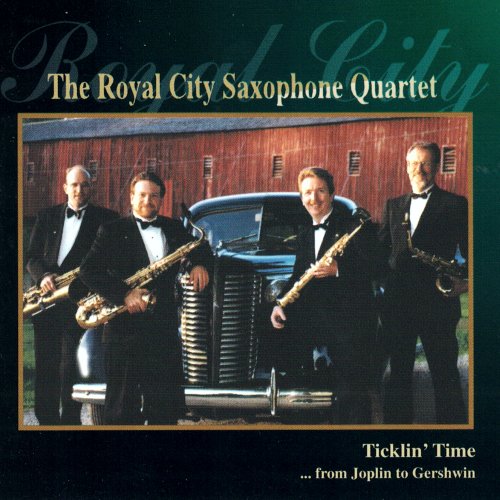
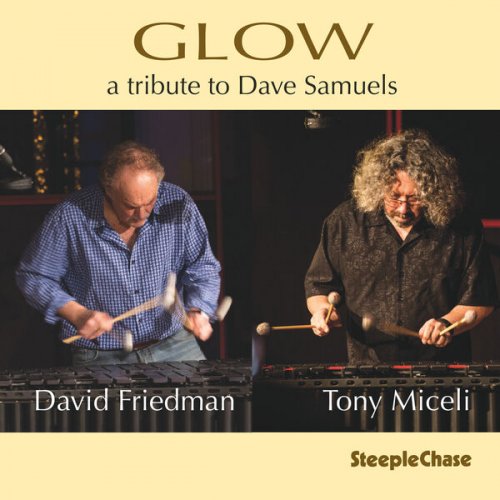
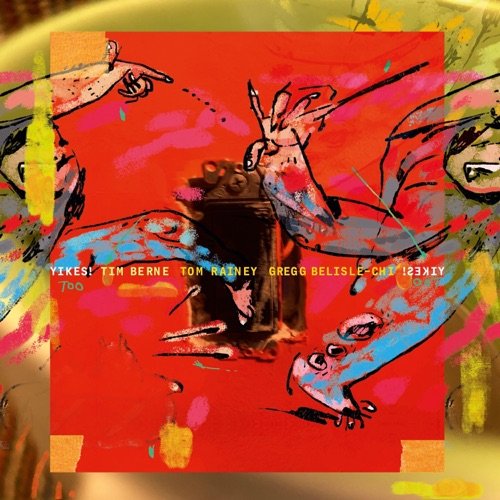
![Charlie Jung - Kailash Band (2026) [Hi-Res] Charlie Jung - Kailash Band (2026) [Hi-Res]](https://www.dibpic.com/uploads/posts/2026-03/1772463390_cover.jpg)